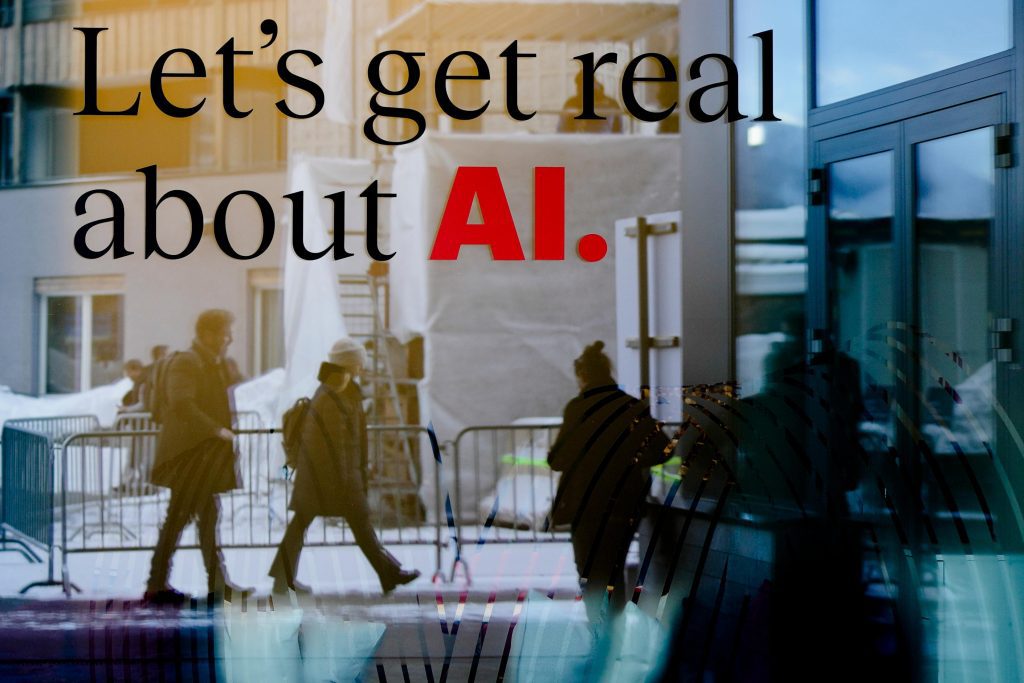By Ali Swenson and Kelvin Chan, Associated Press
LONDON (AP) — Artificial intelligence is intensifying the danger of election disinformation across the globe, allowing anyone with a smartphone and a clever imagination to create fake – yet believable – content designed to deceive voters.
This represents a significant advancement from a few years ago, when fabricating fake photos, videos, or audio clips required teams of people with time, technical expertise, and financial resources. Now, utilizing free and inexpensive generative artificial intelligence services from companies like Google and OpenAI, anyone can generate high-quality “deepfakes” with just a simple text prompt.
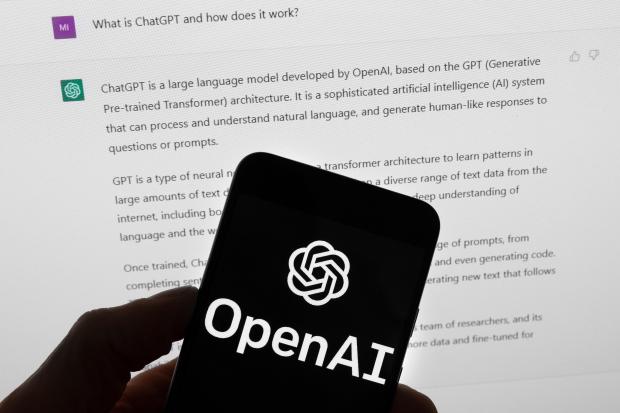
more than 50 countries heading to the polls this year. (AP Photo/Michael Dwyer, File) “You don’t need to look far to see some people … being clearly confused as to whether something is real or not,” said Henry Ajder, a leading expert in generative AI based in Cambridge, England. this year.
The question is no longer whether AI deepfakes could affect elections, but how influential they will be, said Ajder, who runs a consulting firm called Latent Space Advisory.
As the U.S. presidential race heats up, FBI Director Christopher Wray recently
warned about the growing threat , stating that generative AI makes it easier for “foreign adversaries to engage in malign influence.”With AI deepfakes,
a candidate’s image can be tarnished or improved. Voters can be directed towards or away from candidates — or even urged to avoid the polls altogether. However, experts highlight that the greatest threat to democracy is that a surge of AI deepfakes could undermine the public’s faith in what they perceive and hear. Some recent instances of AI deepfakes include:
A video of Moldova’s pro-Western president expressing support for a political party sympathetic to Russia.
- Audio clips of Slovakia’s liberal party leader discussing election manipulation and increasing the price of beer.
- A video of an opposition lawmaker in Bangladesh – a nation with a conservative Muslim majority – wearing a bikini.
- Rumeen Farhana, a politician from the main opposition Bangladesh Nationalist Party (BNP) sits for a photograph during an interview at her residence in Dhaka, Bangladesh, Thursday, Feb. 15, 2024. Farhana, a vocal critic of the ruling party, was falsely depicted wearing a bikini in a video created using artificial intelligence. The viral video sparked outrage in the conservative, majority-Muslim nation. (AP Photo/Al-emrun Garjon)
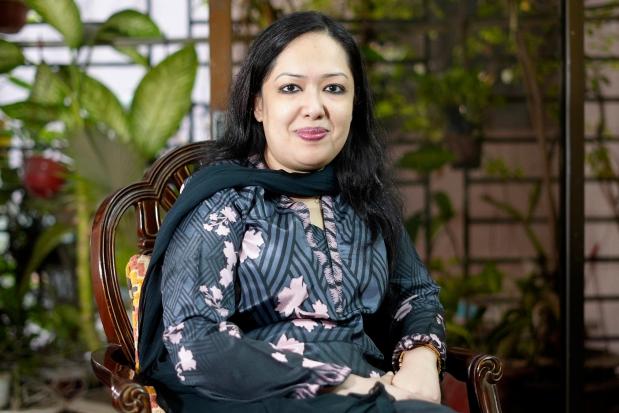
As the technology gets better, according to Ajder, it will be difficult to obtain definite answers about much of the fake content.
ERODING TRUST
Some AI deepfakes are designed to create uncertainty about candidates’ loyalties.
In Moldova, a country in Eastern Europe next to Ukraine, the pro-Western President Maia Sandu has often been targeted. Before local elections, a fake AI video showed her supporting a party friendly to Russia and saying she planned to resign.
FILE – Moldova’s President Maia Sandu, right, greets Ukraine’s President Volodymyr Zelenskyy in Bulboaca, Moldova, June 1, 2023. She has been a frequent target of online disinformation created with artificial intelligence. (AP Photo/Vadim Ghirda, File)
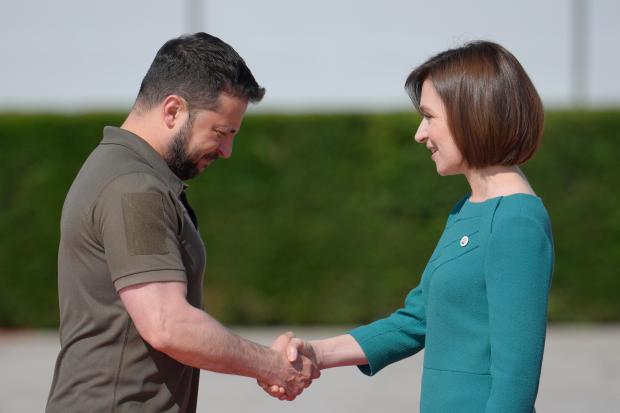
China has also been accused of using generative AI for political purposes.
In Taiwan, a self-governing island that China claims as its own, an AI deepfake attracted attention earlier this year by raising concerns about U.S. involvement in local politics.
A misleading video circulating on TikTok depicted U.S. Rep. Rob Wittman, vice chairman of the U.S. House Armed Services Committee, promising greater U.S. military support for Taiwan if the ruling party’s candidates were elected in January.
FILE – Rep. Rob Wittman, R-Va., questions witnesses during a congressional hearing, on Capitol Hill, Tuesday, Feb. 28, 2023, in Washington. A fake clip circulating on TikTok showed Wittman, vice chairman of the U.S. House Armed Services Committee, promising stronger U.S. military support for Taiwan if the incumbent party’s candidates were elected in January, 2024. (AP Photo/Alex Brandon, File)
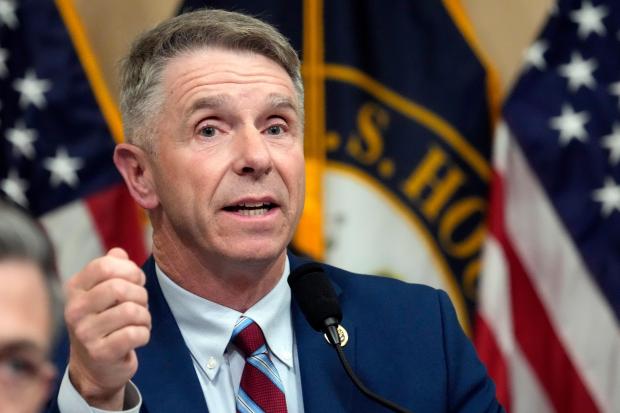
A spokesperson for the Chinese foreign ministry, Wang Wenbin, stated that his government does not comment on fake videos and opposes interference in the internal affairs of other countries. He emphasized that the Taiwan election “is a local affair of China.”
BLURRING REALITY
Audio-only deepfakes are particularly challenging to authenticate because they lack obvious signs of manipulation, unlike photos and videos.
In Slovakia, another country influenced by Russia, audio clips resembling the voice of the liberal party leader were widely shared on social media just before parliamentary elections. The clips supposedly captured him discussing raising beer prices and fixing the vote.
Ajder said it's reasonable that voters could be deceived because humans are “much more used to judging with our eyes than with our ears.”
In the U.S., robocalls impersonating U.S. President Joe Biden urged voters in New Hampshire to abstain from voting in January’s primary election. The calls were later
attributed to a political advisor who stated he was trying to make people aware of the risks of AI deepfakes. FILE – Paul Carpenter is photographed during an interview in New Orleans, Friday, Feb. 23, 2024. Carpenter claims he was hired in January to utilize AI software to mimic President Joe Biden’s voice to persuade New Hampshire Democratic voters not to participate in the state’s presidential primary. (AP Photo/Matthew Hinton, File)
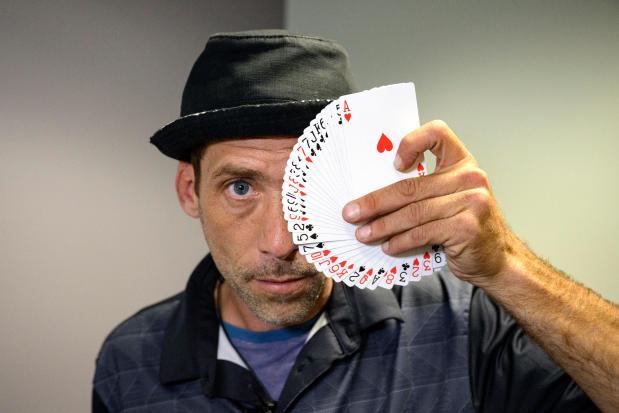
Such was the situation last year in Bangladesh, where opposition lawmaker Rumeen Farhana — a vocal critic of the ruling party — was falsely portrayed wearing a bikini. The viral video caused outrage in the conservative, majority-Muslim nation.
“They believe whatever they see on Facebook,” Farhana said.
FILE – Paul Carpenter explains AI software during an interview in New Orleans, Friday, Feb. 23, 2024. Carpenter claims he was hired in January to utilize AI software to mimic President Joe Biden’s voice to persuade New Hampshire Democratic voters not to participate in the state’s presidential primary. (AP Photo/Matthew Hinton)
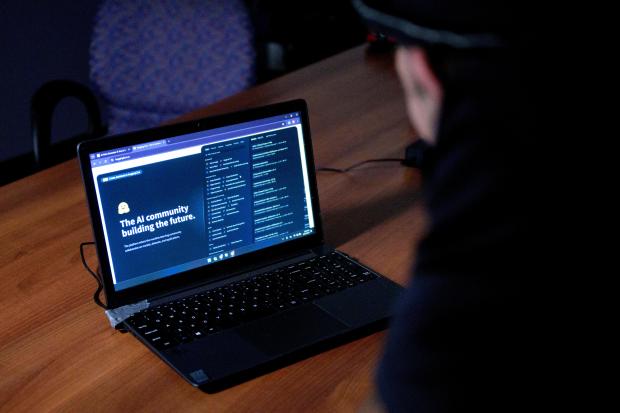
hotbeds for disinformation A CHALLENGE TO DEMOCRACY.
Certain political campaigns are using generative AI to enhance their candidate’s image.
In Indonesia, the team that managed
the presidential campaign of Prabowo Subianto utilized a simple mobile app to build a deeper connection with supporters across the vast island nation. The app allowed voters to upload photos and create AI-generated images of themselves with Subianto. As the varieties of AI deepfakes increase, authorities around the world are rushing to establish guardrails.
The European Union already mandates social media platforms to reduce the risk of spreading disinformation or “election manipulation.” It will require
special labeling of AI deepfakes starting next year, too late for the EU’s parliamentary elections in June. Nevertheless, the rest of the world is significantly farther behind. FILE – People interact with their mobile phones at Dhaka University area, Bangladesh, Dec.21, 2023. Artificial intelligence is increasing the threat of election disinformation worldwide, making it effortless for anyone to create fake – but persuasive – content aimed at deceiving voters. Individuals in countries with low literacy rates, such as Bangladesh and India, are particularly susceptible to social media misinformation. (AP Photo/Mahmud Hossain Opu, File)
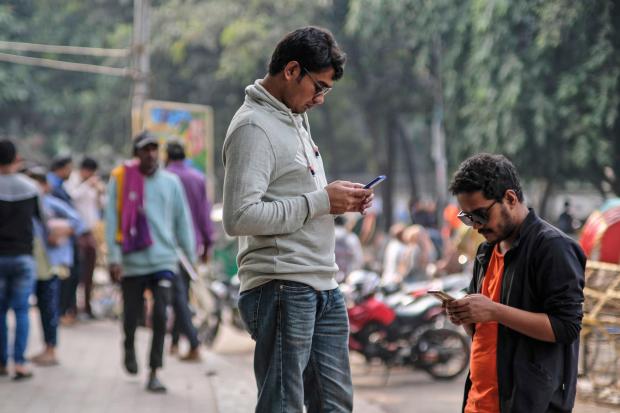
begin labeling deepfakes that appear on its platforms. But deepfakes are more difficult to control on apps like the Telegram chat service, which did not sign the voluntary pact and uses encrypted chats that can be challenging to monitor.
Some experts worry that efforts to control AI deepfakes could have unintended consequences.
Well-intentioned governments or companies might infringe on the sometimes “very thin” line between political commentary and an “illegitimate attempt to smear a candidate,” said Tim Harper, a senior policy analyst at the Center for Democracy and Technology in Washington.
AI services that create things have guidelines to restrict political false information. However, specialists say it is still too simple to evade the platforms’ limitations or use other services that don’t have the same protections.
FILE – A sign with a statement about AI is attached to a building at the Davos Promenade, close to the World Economic Forum in Davos, Switzerland, Jan. 18, 2024. (AP Photo/Markus Schreiber, File)

chatbots are still producing incorrect and deceptive details that poses a threat to exclude voters. And software isn’t the only danger. Candidates could attempt to trick voters by asserting that genuine events showing them in an unfavorable way were made by AI.
“A world in which everything is dubious — and so everyone can decide what they trust — is also a world that’s really challenging for a growing democracy,” stated Lisa Reppell, a researcher at the International Foundation for Electoral Systems in Arlington, Virginia.
The Associated Press gets support from various private foundations to improve its explanatory coverage of elections and democracy. See more about AP’s democracy initiative
. The AP is solely responsible for all content. hereA series of AI deepfakes connected to elections in Europe and Asia has spread through social media for months.





